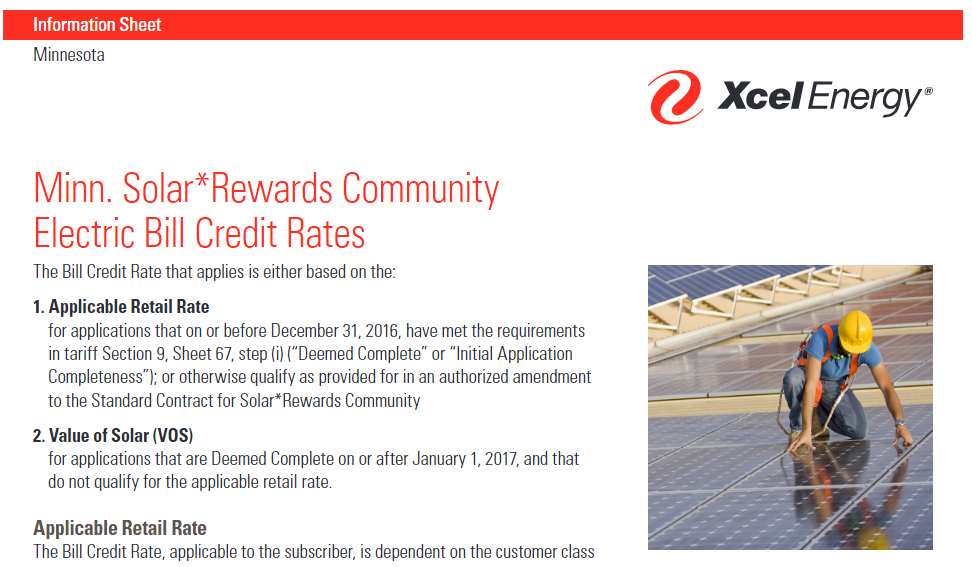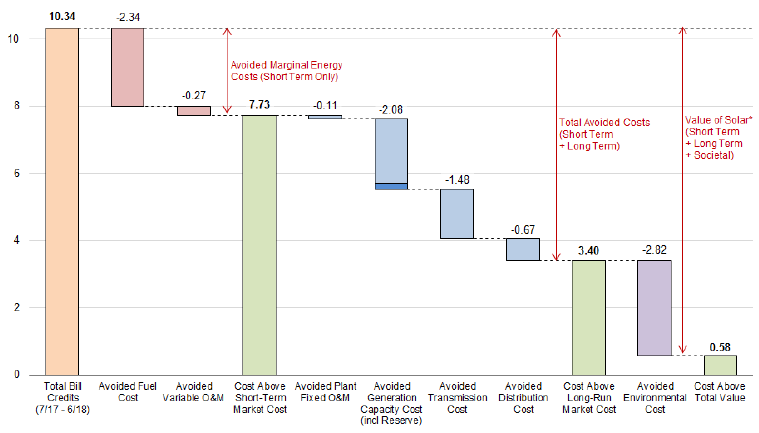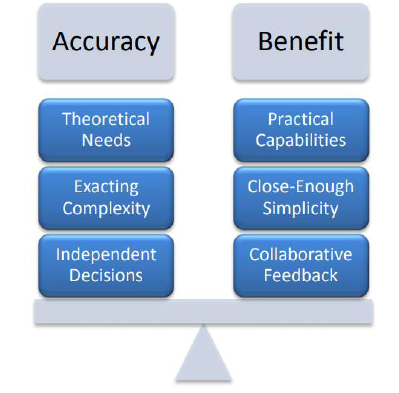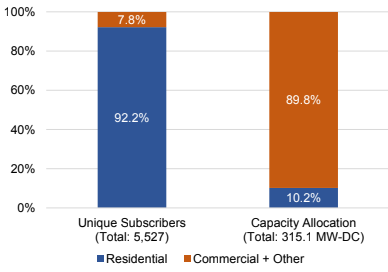The Chan Lab regularly publishes policy briefs, op-eds, reports for clients, and public comments that summarize ongoing research for practitioners, policy-makers, and the public.
legislative testimony
Electric Cooperatives and Power Supply Contracts in Minnesota
Electric cooperatives are not-for-profit utilities owned by the energy users they serve, their “member-owners,” as they’re called. There are 44 cooperatives that primarily serve Minnesota, which is the second-highest number of cooperatives of any state in the country. Electric cooperatives hold power-supply contracts that formalize the relationship between distribution cooperatives and the generation and transmission cooperatives and allowed for the financeability of large power plants.
Public Comment
Methods for Calculating Avoided Distribution Costs in the Value of Solar (Docket No. M-13-867)
Members of the Chan Lab submitted comments to the Minnesota Public Utilities Commission on methodologies for calculating the avoided distribution cost component of the Value of Solar Tariff. The comments review existing and proposed approaches in Minnesota and other methodologies applied in other states.
legislative testimony
ratepayer impact of xcel energy’s Community Solar Garden program
Xcel’s community solar garden program, now with over 500 MW of active projects, has a complex cost-recovery mechanism. Bills in Minnesota’s House (H.F. 2625) and Senate (S.F. 1891) would make changes to the community solar program. Gabe testified on the ratepayer impact of the community solar program. Also available at the link below is an accompanying spreadsheet that shows referenced calculations to understand the ratepayer impact of the program on Xcel customers.
Op-Ed
After Xcel Energy’s zero-carbon pledge, let’s make sure the public benefits
Writing in the MinnPost, Gabriel Chan and Lab members Lindsey Forsberg and Matthew Grimley react to Xcel Energy’s announcement of their plan to provide carbon-free electricity by 2050, arguing for the continued importance of public oversight.
Public Comment
reply comment on Value of Solar 2019 Vintage (Docket No. M-13-867)
Members of the Chan Lab submitted reply comments to the Minnesota Public Utilities Commission on the calculation of the Value of Solar Tariff for 2019 that reimburses subscribers in Xcel's community solar program. The comments discuss calculations of the total cost of the community solar program based on the value of solar.
Public Comment
Comment on Value of Solar 2019 Vintage (Docket No. M-13-867)
Members of the Chan Lab submitted comments to the Minnesota Public Utilities Commission on the calculation of the Value of Solar Tariff for 2019 that reimburses subscribers in Xcel's community solar program. The comments discuss the calculation concepts and procedures of revising avoided cost estimates in the Minnesota regulatory process.
Issue Brief
Issue Linkage in the Climate Regime: gender policies in climate finance
report
Issue Linkage in the Climate Regime: Gender Policies in Climate Finance
At the international policy and institutional level, the goal of gender equality has been increasingly linked with climate change under the assumption that linkage will create important synergies and co-benefits in climate change adaptation and mitigation. We critically examine the linkage of gender and climate to understand why gender mainstreaming is occurring in this field and to what extent the linkage of gender to climate is appropriate and/or useful. We provide a high-level comparison of existing multilateral and bilateral gender policies, and end with open questions and key takeaways as climate funds move from policy to implementation. Although our focus is primarily on the issue linkage of gender equality and climate change, gender is only one of dozens of fields being linked to climate.
Report
Sharing the same sun: analyzing low-to-moderate income solar subscriptions for cooperative energy futures
Cooperative Energy Futures (CEF) is an energy efficiency and clean energy cooperative based in South Minneapolis and serving members across Minnesota. They develop community solar gardens (CSS or community solar) in Xcel Energy’s community solar program. Because CEF doesn’t perform credit checks or income verification with their customers, the Chan Lab worked with CEF to develop a methodology to verify their customers’ average incomes through geographic and statistical analysis.
Public Comment
Comment on Value of Solar residential Adders (Docket No. M-13-867)
Members of the Chan Lab submitted comments to the Minnesota Public Utilities Commission on the concept of a residential adder to the Value of Solar Tariff that reimburses subscribers in Xcel's community solar program.
Issue Brief
Community Shared Solar in Minnesota: Learning from the First 300 Megawatts
Report
Community shared solar in minnesota: Learning from the first 300 megawatts
Community shared solar (CSS) is an emerging approach to
deploying solar energy that seeks to expand the market for solar to electricity customers who do not necessarily have appropriate roof space or access to capital. CSS allows customers to own, finance, or lease a share of an offsite, centralized solar facility.
As of March 2018, Minnesota has 33 utility- or developer-led CSS programs, totaling over 300 MW, making it the state with the most CSS in the country.
Issue Brief
Broadening Access to Solar Energy: Community Shared Solar Programs in the U.S.
Community shared solar (CSS) is an emerging approach to increase solar energy deployment and broaden access to its benefits, with the potential to address the disproportionate "energy burden" faced by low-income households. We are studying CSS programs in six states to understand the diversity of approaches being taken to broaden access to community solar for low- and moderate-income households.
Op-Ed
Solar tariffs more likely to cut than protect jobs
Writing in the Minneapolis Star Tribune, Gabriel Chan and Lab member Jacob Herbers lay out three steps Minnesota can take to prevent job loss from President Trump's tariffs on imported solar cells and modules.
Podcast
Public Funding for Energy Research and Development
Effective decision making to allocate public funds for energy technology research, development, and demonstration (R&D) requires considering alternative investment opportunities that can have large but highly uncertain returns and a multitude of positive or negative interactions. In this podcast, Gabriel Chan, explores the utility of applying new methods to improve the cost-effectiveness and environmental performance in a deliberative approach to energy R&D portfolio decision making.
Issue Brief
Linking Gender Policy and Climate Finance
Ahead of COP23 in Bonn, Germany we summarized our ongoing work into linking gender policy with climate finance. The goal of gender equity is increasingly linked to climate change policy under the assumption that this “issue linkage” will produce important synergies and co-benefits. While the logic and practice of the gender-climate linkage has been critiqued, it has become prominent in international climate change institutions. Here we summarize lessons learned from gender mainstreaming in the development sector as well as questions raised by current practices in climate change regarding the advantages, limitations, and best practices for integrating the goals of gender equity and international climate change policy.
op-ed
Minnesota steps up to the plate on climate
Writing in the Minneapolis Star Tribune, Ellen Anderson, Gabriel Chan, and Rep. Melissa Hortman reflect on Minnesota's role following President Trump's announcement to leave the Paris Agreement on climate change. Ellen Anderson is the executive director of the University of Minnesota’s Energy Transition Lab and a former state senator who authored the Renewable Energy Standard and Melissa Hortman, DFL-Brooklyn Park, is minority leader of the Minnesota House and authored the Solar Energy Standard.
issue brief
Cooperative Climate Change R&D That Works
International cooperation provides the opportunity to accelerate innovation while also broadening access to and deployment of new inventions. However, these efforts also face multiple roadblocks in implementation. Here we propose a set of five key principles to establish cooperative R&D arrangements. We believe following these principles will lead to the formation of cooperative R&D arrangements which will enjoy the advantages of collaboration while bypassing many of the potential barriers.
issue brief
Guidelines for a Sectoral Sustainable Development Mechanism in the Post-2020 Climate Regime
Ahead of COP22 in Marrakech, Morocco, we proposed a set of guidelines for a Sustainable Development Mechanism (SDM), a new market-based mechanism under Article 6 of the Paris Agreement. We propose that a new SDM should adopt a sectoral approach for facilitating the international transfer of mitigation outcomes. We suggest ways in which a new sectoral SDM can create a robust, credible market for tradeable carbon offsets, building upon the lessons of the project-based Clean Development Mechanism (CDM) and active sectoral-based crediting mechanisms in several domestic contexts.
op-ed
How to Fix the national laboratories
Writing in the National Interest, Laura Diaz Anadon, Gabriel Chan, Amitai Bin-Nun, and Venkatesh Narayanamurti lay out a set of recommendations to reform the Department of Energy’s National Labs.
testimonty
Securing America’s Future: Realizing the Potential of the DOE National Laboratories
Written Testimony to the U.S. Senate Appropriations Subcommittee on Energy & Water Development, delivered by Venkatesh Narayanamurti with Laura Diaz Anadon, Gabriel Chan, and Amitai Bin-Nun.



















